IN ENGLISH
Montenegro – Media and freedom of expression after EC’s Progress Report 2010
Objavljeno prije
14 godinana
Objavio:
Monitor onlineAfter the adoption of Progress Report in 2010, where European Commission emphasized seven areas, including press freedom and freedom of expression that should be improved so Montenegro could get a date to start negotiations on the EU membership, the Government publicly declared commitment to changes and fulfilment of the tasks.
New PM Igor Luksic immediately brought certain improvements – more tolerant language and a new style in relation to the media and civil society. A bill was introduced to decriminalize defamation.
The government gave specific help of €5 million to the electronic media (to pay taxes for the signal transfer), that significantly improved the financial situation of private broadcasters. The Government also supported the printed media, by bailing out the big newspaper distributor Bega press in the amount of € 800.000. It made possible for all Montenegrin publishers to get 85% of their receivables that Bega press owed to dailies Dan, Vijesti and Pobjeda and to the weekly Monitor.
However, despite these positive examples, the media that are not controlled by the ruling circles continue to have serious problems in Montenegro.
The state has never solved the cases of physical attacks on Montenegrin journalists, including the murder of newspaper editor Dusko Jovanovic. Even worse, when the perpetrators are known, the state still fails to dispense justice and sends a clear message to those who continue to criticize the government and write about organized crime and corruption.
Pressure on the daily Vijesti: In July and August, in three actions, unknown individuals have put on fire 4 cars of the daily Vijesti. In statements following the first incident, Director of Police Veselin Veljovic and Prime Minister Luksic, agreed that this was just an ‘isolated case’. Unfortunately, they turned to be wrong, since the attacks continued while the perpetrators have still not been found and there are no signs of progress in the investigation.
It is interesting that in two cases, cars were set on fire immediately after interviews that former prime minister Milo Djukanovic gave in July to daily Pobjeda in August to Serbian TV Kosava. In each interview, Djukanovic strongly attacked the independent media, particularly the daily Vijesti.
The Persecution of Mihailo Jovovic, Vijesti’s Editor in Chief: In September 2011, a court case was initiated against the Editor-in-Chief of the daily Vijesti. In August 2009, the then deputy editor-in-chief Mihailo Jovovic and photojournalist Boris Pejovic were assaulted by Mayor of Podgorica Miomir Mugosa and his son while covering a story on Mayor’s repeated illegal parking and the functioning of the city’s communal police. The journalists were threatened with a gun by the Mayor’s son and Mr. Jovovic was admitted to hospital with a ruptured eardrum.
Colluding with the Mayor, police failed to take any evidence from the scene, including the gun, while prosecutors falsely indicted Mr. Jovovic for attacking the Mayor’s driver and causing him serious brain injury, contrary to two expert medical opinions.
At the end, almost two years after the event, instead of investigating and prosecuting the Mayor, his son and driver, the prosecutor indicted Mr. Jovovic for inflicting minor injuries in the form of scratch to the driver’s head with his mobile phone. He based that only on Mr. Jovovic’s admission that he had a mobile phone and a tape recorder in his hands during the incident, because all other claims by the Mayor, his son and driver that Jovovic hit the driver with his hand, fist or elbow were refuted by the court experts.
Anyhow, the prosecutor decided that a mobile phone is a tool or weapon that could have seriously endangered one’s health or life (up to now, prosecutors and courts considered that such tools or weapons were metal bars, baseball bats, guns, knifes, etc.) in order to have a more serious legal qualification of the alleged crime in the indictment, so that Mr. Jovovic could go to jail up to three years, if convicted.
The Mayor was fined €400 for misdemeanor, but was not charged with assaulting the Vijesti journalists and instigating the attack. The Mayor suffered no political consequences and was publicly supported by the Prime Minister and other high ruling party officials.
Treatment of the independent media representatives as criminals and enemies: In a TV interview, the state prosecutor Ranka Carapic put in the same rank Vijesti founders and members of Darko Saric’s organized drugs cartel. However, she did not cite any evidence for such false claims while announcing the criminal procedure against the owners of the daily for alleged irregularities on the stock exchange. Earlier, the same prosecutor used to announce criminal procedure against Vijesti owners for other alleged crimes, but she said that she cannot do it now due to the statute of limitation, and that she was focusing on a new investigation now.
In an interview to the state TV, former PM Milo Đukanović, who is still at the helm of the ruling DPS, said that there is no opposition in Montenegro, and that „our biggest problem are some media centers that are trying to stir chaos in the DPS”.
These dangerous statements were followed by a smear propaganda against the independent media, led by media controlled by the ruling circles close to Djukanovic. The representatives of the independent media have been accused for being disloyal to the Montenegrin state and depicted as non-patriotic, even for belonging to the organized crime.
Only in the independent media one can find serious investigative pieces on corruption, non-transparent privatizations, links of the political elite with criminals, etc. The aim is clear – they are trying to silence and discipline the independent media, their founders, editors and journalists by publicly lynching them.
Financial pressures through advertising: The biggest portion of the total advertising budget from the state institutions – the national and local governments, agencies, ministries, state owned companies – goes mostly to the media controlled by the state and ruling political structures
The state companies and government institutions place most of the print ads in the daily Pobjeda, that has three times smaller circulation than private dailies Dan and Vijesti.
Pobjeda sells its advertising space to the state companies and institutions for much higher prices than do Vijesti and Dan. Also, Pobjeda offers very law advertising prices to private companies, threatening thus the independent media to lose its main source of revenue.
The oldest daily, state owned Pobjeda, should have been privatized according to the Media Law already in 2002, so that it would not have the monopolistic position. That has not been done so far. Despite the state advertising monopoly, being financed from the state budget, Pobjeda incurred a loss of €4.2 million last year. Until recently, the political director of the ruling Djukanovic’s DPS was the President of Board of Pobjeda. Pobjeda leads the propaganda campaign against the independent media. During 2010 and 2011. A series of 60 articles has been published using a hate speech against representatives of Vijesti and Monitor, which have often been portrayed in these texts as an organized criminal group.
Court cases: Despite numerous announcements and statements that they would stop with persecution of independent media through the courts, Montenegrin courts delivered several decisions for libel, without sound reasoning, and the fines were much higher than those prescribed by the European Court Of Human Rights in Strasbourg. The Monitor weekly was recently fined for alleged defamation to pay €4.000, which is significantly higher than six monthly average wages, which is the Strasbourg Court practice.
Lawsuits against independent media are usually initiated by representatives of political and business elite, but also by the suspects from the organized crime ranks. Among plaintiffs against dailies Vijesti and Dan, and the weekly Monitor, are former prime minister Milo Djukanovic, suspected narcoboss Safet Kalic, cigarette trafficker Stanko Subotic Cane, and the war minister of interior in Republika Srpska Tomislav Kovac, suspected for war crimes and alliance with Radovan Karadzic. Some of the cases have been concluded with hefty fines against independent media, while others are still underway.
Public radio and television: RTCG has stayed captured and under complete domination of the ruling political circles. Its program does not reflect the public interest and serves mostly as propaganda of the ruling structures. There is no pluralism of ideas and subjects, there is no proportional representation of different social groups. In the news programs, the primacy is given to the ruling parties and leading government officials, while the information on actions and views of the opposition and civil society representatives significantly lags behind. RTCG TV journalist Marko Milacic was replaced as the main news anchor and now works in international news, because he publicly expressed his critical views of the ruling DPS. He was told that his contract would not be extended and that he would lose his job at RTCG.
Branko Vojicic, general manager of RTCG was replaced on 28 July 2011, after the RTCG Council refused to adopt the financial statements for 2010. According to media articles, the State Audit Institution report on RTCG cites numerous examples of non-transparent financial transactions.
Self regulatory body: The new self regulatory body has not been formed in Montenegro, but thanks to OSCE efforts a working group has been formed in order to agree the modalities of the future body. Members of the working groups are representatives of te state and controlled media – Pobjeda, RTCG and Radio Antena M. As well as representatives of the independent media – Vijesti, Dan and Monitor.
It is questionable to talk about self regulatory body in the country were most of the media, controlled by powerful people, above all by the ex PM Djukanovic, is used to persecute independent media. Even if we left aside this blatant fact, it is clear that Djukanovic’s media intention is to make self regulatory body look like the RTCG Council, the body that would looks after and protects Djukanovic’s family private interests and not professional standards. The media controlled by the powerful structures argue for so called united self regulatory body, while independent media representatives want a kind of a ‘press council’, whereby the Broadcasting Agency would regulate the electronic media, which is already its function by law.
Independent media representatives argue for self regulatory body that would look after professional standards, ethics and advice, in order to help media with suggestions and criticisms to be more objective, while giving possibility to the public to complain, highlighting mistakes and breaches of code of ethics. On the other side is the intention of the controlled media to form the so called united body, where they would have a majority and control self regulation.
The media that are the furthest from the professional standards simply do not have interest to form self regulatory body as a serious institution. We reiterate that none of the cases with elements of corruption and organized crime at the highest level was investigated by these media.
The champions of the investigative journalism are Vijesti, Dan and Monitor, and those media are under attack by the courts and the executive. Their journalists were also subject to brutal physical attacks in the last several years.
Pressure by the criminal structures: Representatives of the independent media have a huge problem with regard to security and normal functioning of their newsrooms due to the pressures from the criminal circles. In the last six months we had a drastic case of persecution of Vijesti journalist Olja Lakic, who wrote a series of articles on illegal production of cigarettes in the northern town of Mojkovac.
After that, those in that murky business have threatened Mrs Lakic and her family in several ways, while the police tried to minimize and cover it up, instead of investigating it thoroughly and protecting the journalist.
On the basis of these facts, we believe that changes in the media freedom and freedom of expression are minimal. The biggest problem is the heavy burden and practice of the former PM Djukanovic that PM Luksic, despite democratic rhetoric, obviously cannot fight off yet.
Milka Tadić Mijović
CEO Monitor, weekly
Željko Ivanović
CEO Vijesti, daily newspaper
Podgorica
13.09.2011.
Komentari
IN ENGLISH
Government Summons Ambassadors for Consultations and Instructions: A Foreign Policy Tightrope
Objavljeno prije
3 mjesecana
12 Aprila, 2025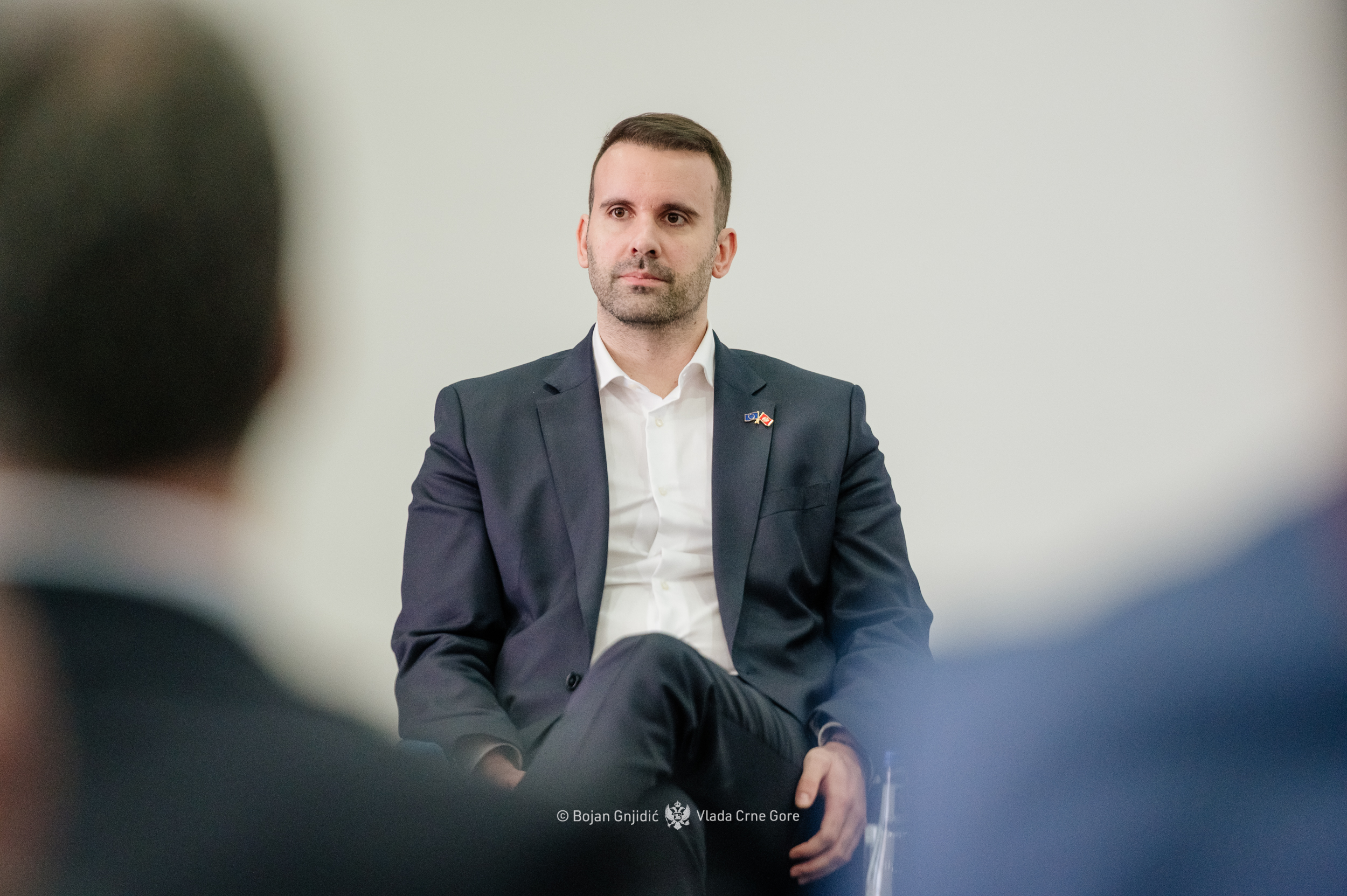
Prime Minister Milojko Spajic recently held a series of individual meetings with Montenegrin ambassadors—from Ukraine to Europe to the United States. Informal sources within the government say that during these meetings, the Prime Minister outlined a new geopolitical landscape shaped by Donald Trump’s return to power in the U.S. and evolving dynamics with the European Union
At the end of February, the Ministry of Foreign Affairs (MFA), led by Minister Ervin Ibrahimovic, summoned nearly all Montenegrin ambassadors stationed in Europe and the U.S. for urgent consultations, set to begin on March 6. The move sparked anxiety among some diplomats, who feared a repeat of the events of November 15, 2024, when three ambassadors were abruptly dismissed.
Monitor finds out that Spajić met separately with key diplomats, including Ukraine-based Borjanka Simicevic and U.S.-based Jovan Mirkovic. However, the concerns of mass dismissals proved unfounded. Instead, sources say the Prime Minister emphasized Montenegro’s continued commitment to the EU and instructed ambassadors to maintain a clear, pro-European stance. At the same time, he advised them against making any public criticisms of the United States or commenting on current rifts between the U.S. and its European allies.
Montenegro’s calibrated position became evident on March 11 at a meeting of top European military officials in Paris, where strategies for supporting Ukraine were discussed following Washington’s announcement of a suspension in military aid. The U.S. was not invited to the Parish meeting as the European leaders were keen to show they could step up independently if needed. Though an AP report initially stated that only Montenegro and Croatia, among NATO’s European members, failed to respond to the invitation, the Prime Minister’s Security and Defense Advisor, Todor Goranovic, told Radio Free Europe (RFE) that Montenegro would indeed participate. However, only the deputy military representative to NATO in Brussels attended because “Chief of General Staff Zoran Lazarevic was officially visiting Bulgaria at the time” – Goranovic explained.
Meanwhile, dissatisfaction is growing within Montenegro’s ruling coalition over Ambassador Mirkovic’s performance (or the lack thereof) in Washington. Tensions reportedly flared after a mid-February meeting with U.S. officials where he suggested that the fall of Serbian President Aleksandar Vucic could weaken some of his Montenegrin puppets. The details of the aforesaid meeting could not be independently confirmed. The subsequent report sent to Podgorica reportedly angered Spajic’s coalition partners from the former Democratic Front (DF). Although the DF was not directly mentioned in the report, its officials saw themselves as being referred to by the ambassador. One of them even retorted that those remarks would be a ground for the ambassador’s recall.
Discontent also emerged from the opposite ideological camp. Metropolitan Boris of the Montenegrin Orthodox Church (MOC) sent a protest letter to Minister Ibrahimovic, complaining that the embassy in Washington did not engage with the MOC delegation during their visit. The embassy, he wrote, failed to meet with them or assist in organizing meetings with U.S. officials. Furthermore, Metropolitan Boris complained that the embassy was “ignorant of some names and institutions that we wanted to reach out to”. He directly blamed the ambassador for the embassy’s dismissive stance.
As Monitor has previously reported, the embassy in Washington is increasingly out of sync with developments in the U.S. The once-prominent Montenegrin Caucus in Congress, which boasted 42 members under former ambassador Srdjan Darmanovic, has effectively dissolved. It’s now reduced to a single member—Congresswoman Chellie Pingree from Maine. Darmanovic had successfully lobbied to counter opposition to Montenegro’s NATO membership, despite concerns over ties of the Djukanović government with foreign criminal networks and Russian intelligence services.
Pingree reportedly sent multiple letters to the embassy criticizing the lack of engagement, but received no response. Monitor also reached out to her office twice for comment but had not received a reply at the time of publication.
Diplomatic affairs aren’t running smoothly in Europe either. In late January, the government approved the appointment of 14 new ambassadors. The list was coordinated with President Jakov Milatovic, whose signature is required for the appointments. Opposition parties and members of the pro-Serbian bloc raised objections, particularly over the inclusion of figures associated with the long-ruling Democratic Party of Socialists (DPS) and former foreign minister Milan Rocen.
One such appointee is Dragana Radulović, a longtime diplomat and former advisor to Prime Minister Dusko Markovic. She was posted to New York as Montenegro’s representative to the UN. She has been in diplomacy since 2000. Internal sources indicate that Veljko Milonjic initially hoped for the post in New York but was instead sent to Warsaw. Milonjic is remembered for his involvement in the so-called “cocaine affair” of 2015 when he was the head of Montenegro’s consulate in Munich. A truck from Munich carrying drugs under diplomatic seal was intercepted at the Austrian border. Though the Ministry of Foreign Affairs denied direct involvement, the incident cast a long shadow. Milonjic denied wrongdoing but was quietly recalled while the Consulate General in Munich was closed down. Milonjic was later appointed to a senior diplomatic post despite the scandal never being prosecuted. The truck driver, Sasha Mugosha, was sentenced to six years in prison. He was released after serving two and a half years and deported to Montenegro.
In March, the government announced that former German Bundestag member Holger Haibach had been appointed as a senior special advisor to Prime Minister Spajic, beginning January 1. Haibach will advise on regional relations in the Western Balkans and support EU accession efforts. His services will be funded by Germany’s Center for International Peace Operations (ZIF). While Haibach’s selection followed a public hiring process, sources in the diplomatic community question his current influence in Berlin. Haibach, a former CDU member of parliament, left office in 2011. Meanwhile, Veljko Kustrov, a Herzegovinian with close ties to Spajic, is considered his main point of contact in Germany.
Perhaps the most controversial diplomatic appointment so far is that of Dusanka Jeknic, a figure from the 1990s linked to the Djukanovic regime and repeatedly associated with cigarette smuggling. However, the Italian prosecutors could not present sufficient evidence against her in court. Jeknic was assigned to the embassy in Turkey after President Milatovic purchased property from her in Podgorica. Milatovic later claimed he had not been consulted on her appointment, stating that such decisions were under the MFA’s jurisdiction. He emphasized that his property purchase had been properly reported to Montenegro’s Agency for the Prevention of Corruption.
Previously, Milatovic had criticized the appointment of Predrag Drecun to lead Montenegro’s Investment Development Fund because of his close ties to the Djukanovic regime.
Montenegro is yet to drive a long and bumpy road before it gets a professional diplomatic network.
Jovo MARTINOVIĆ
Komentari
IN ENGLISH
TWILIGHT OF MONTENEGRIN INTERESTS IN AMERICA: Prayer Breakfast Instead of Real Diplomacy
Objavljeno prije
3 mjesecana
12 Aprila, 2025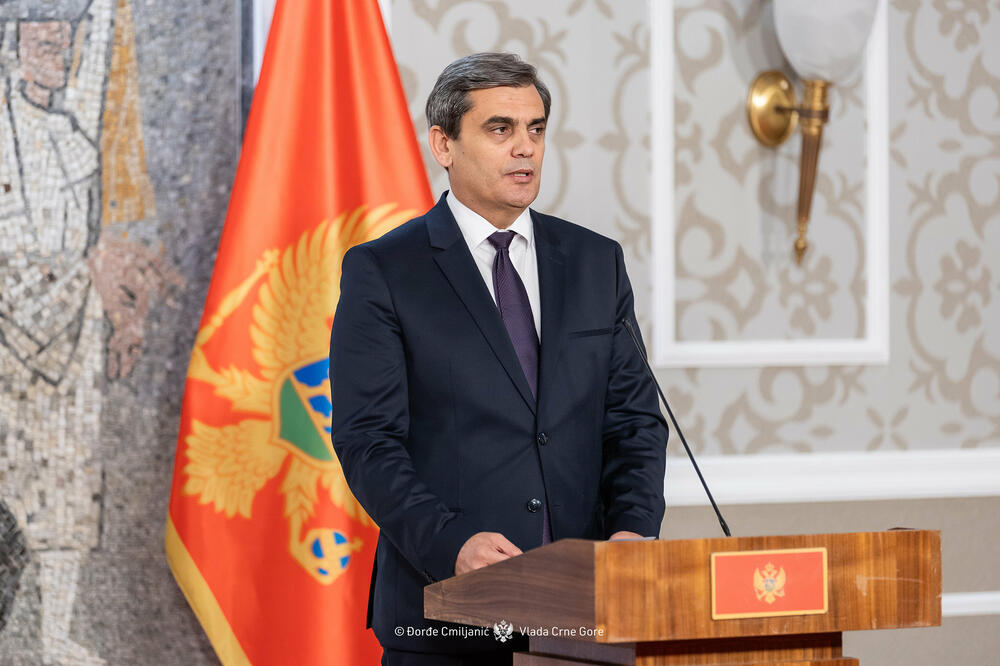
Aside from occasional trips and engagements with diaspora organizations, Montenegro shows little sign of having a coherent lobbying strategy in the United States. With the retirement of Congressman Doug Lamborn, the Montenegrin Congressional Caucus has dwindled to just one representative: Congresswoman Chellie Pingree from Maine
The 73rd annual National Prayer Breakfast in Washington recently took place, drawing more than three thousand leaders and prominent figures from politics and civil society from around the globe. Over the course of two days, participants had opportunities to network and exchange ideas at the Hilton Hotel, under the official patronage of the U.S. President.
Invitations were extended to a broad range of Montenegrin officials, including Prime Minister Milojko Spajic, Foreign Minister Ervin Ibrahimovic, Deputy Prime Minister for Economic Policy Nik Djeljoshaj, Minister of Urban Planning Slaven Radunovic, Minister of Transport Maja Vukicevic, and Minister for Human and Minority Rights Fatmir Djeka. Parliamentary invitees included many MPs, both from the opposition and the majority. Former President Milo Djukanovic and his close aide Branimir Gvozdenovic received invitations as well as several other ex officials. Also in attendance was Vijesti columnist and co-founder Zeljko Ivanovic—reportedly the only one whose travel wasn’t funded by taxpayers.
Branimir Gvozdenovic is often featured in pro-DPS (Democratic Party of Socialists) media as a regional liaison for the Prayer Breakfast. However, his name is absent from the official records of the event’s organizing foundation. Meanwhile, the Montenegrin delegation was accompanied by support staff including security, administrative personnel, and translators — necessary, since only Minister Vukicevic speaks fluent English. Translation was required for Djukanovic, Gvozdenovic and most MPs.
The cost of attending the Prayer Breakfast—including registration fees, three nights in a hotel, airfare, and daily allowances (currently €112 per day) — typically totals around $3,000 per person. When accompanying staff is added, the total bill reaches into the tens of thousands of euros. Out of the entire group, only Ministers Ibrahimović and Djeka were scheduled for official meetings at the U.S. State Department.
Minister for the Diaspora Adem Azemovic, representing the Bosniak Party, made his second trip to the U.S. in a month, accompanied by two associates. In late December, he met with Naser Nika, head of the Albanian-American Association of Staten Island. After the New Year he returned to meet him again. When asked why a second meeting was necessary, the Ministry explained that the first encounter had been brief, and the second was based on an official invitation. The association, which includes Albanian Montenegrins living in Staten Island, was praised for promoting Montenegro in New York.
Azemovic also visited the New York State Assembly, which is reportedly considering hosting Montenegro’s Independence Day celebration. His office described this as an opportunity to mark one of the country’s most significant holidays in a high-profile setting. Interestingly, Montenegro’s Independence Day was already celebrated at New York City Hall on May 23, 2024, in an event organized by the Albanian-American Association of Ulcinj. That celebration included Montenegro’s Consul Amer Cikotic and the Association’s president Dzelal Lanica. Nika had publicly criticized the event on Facebook, claiming that it misrepresented interethnic relations in Montenegro and highlighted Serbian political influence via Serbian President Vucic-backed factions.
Despite these diaspora engagements, there is little to suggest that Montenegro has any serious lobbying efforts in Washington—particularly with key decision-makers. Nebojsa Medojevic, leader of the Movement for Change (PZP), remarked that “Montenegro simply failed to grasp the magnitude and significance of political changes occurring in the U.S.”
“The current ambassador —Professor Jovan Mirković is openly anti-Trump and a personal ally of Aco and Milo Djukanovic” Medojević stated. “He has no meaningful contacts in Washington and no ideological alignment with the current direction of U.S. politics, so it’s unclear who or what he’s even representing.” He went on to question the competence and professionalism of the current government’s foreign policy team.
Interestingly, Nebojsa Todorovic, the former chargé d’affaires in Washington, had warned the Ministry of Foreign Affairs (MFA) and the government in late 2023 to prepare for a potential return of Donald Trump.
Since arriving in Washington in mid-September, Ambassador Mirkovic has maintained a notably low profile. His biography reveals he spent several years in Russia during the early 1990s—the same period when Milan Rocen was serving as minister-counselor at the Yugoslav embassy. Sources claim that Mirkovic has family ties in Russia and is known for his longstanding loyalty to the Djukanovic regime. Neither Djukanovic nor his Democratic Party of Socialists (DPS) have ever renounced their 2011 strategic cooperation agreement with Putin’s United Russia. In fact, the DPS publicly reaffirmed its pride in these ties in Parliament last year.
With the departure of Doug Lamborn—one of the Montenegrin Caucus’s co-chairs—the group now counts only a single member: Congresswoman Chellie Pingree. Meanwhile, Serbia has been actively growing its influence. Foreign Minister Marko Djuric, a former ambassador to Washington, has built up the Serbian Caucus to nearly 40 members. Djuric even boasted that Serbia, though not a NATO member, has stronger U.S. ties than Montenegro.
Some claim that Serbia pressured Podgorica through influential regional businessmen into sending a low-impact figure to Washington. The contrast with past Montenegrin diplomacy is stark: Under Ambassador Srdjan Darmanovic, the Montenegrin Caucus had grown to 42 members, surpassing even the Albanian caucus. Darmanovic worked closely with Congressman Mike Turner to gain U.S. support for NATO accession—despite Djukanovic’s regime then-notorious links to organized crime and Russian intelligence services.
Efforts to revive the caucus were briefly relaunched by Nebojsa Todorovic, who during his stint as chargé d’affaires in 2023 helped re-engage 10 U.S. lawmakers, including Turner and other influential committee chairs such as Michael McCaul and Robert Aderholt. For a brief period, Montenegro held a unique status in the Balkans, with three Congressional committee leaders in its caucus.
However, Todorovic has since been recalled, and with him, much of Montenegro’s presence in Washington has faded again into inertia.
This raises uncomfortable questions: Is Spajic’s government reverting to the old practice of conducting diplomacy through informal channels and business networks, as seen under Djukanovic and his top advisor Rocen? At the time, oligarchs like Oleg Deripaska and other Putin loyalists were reportedly enlisted to lobby for Montenegro in the West.
That line of approach came at a steep cost to the country—and its reputation.
Jovo MARTINOVIĆ
Komentari
IN ENGLISH
2BS FORUM IN KGB HOTEL: Atlantic Council of Montenegro – who and what it represents?
Objavljeno prije
8 mjesecina
7 Novembra, 2024
The current ACM chairperson is Milica Pejanovic – Djurisic, a long-time official of the once ruling DPS, former minister of defence and a reputable senior diplomat. The activities of the ACM are realised through three centres of which the Digital Forensic Center (DFC) comes to the fore. DFC was founded in 2018 and has released a number of publications on Russian malign influence, mainly from the view point of DPS
Last week (3-4 Oct) the 14th To Be Secure Forum Montenegro (2BS) took place in Hotel Splendid in Becici – Budva, under the auspices of the Atlantic Council of Montenegro (ACM). Its website states that 2BS is a leading politico – security conference in Southeast Europe. This year’s topic is World in Disorder: Turning Adversity into Opportunity with a focus on the repercussions and security challenges in the Western Balkans.
The event brought together more than 400 participants including government officials, high-ranking representatives of international organisations and diplomatic missions, and prominent experts in security and international relations. ACM points out that “it has devoted itself to the promotion of Euro-Atlantic values and international security since it was founded in 2006”. In the same year, the ACM became a member of the global Atlantic Charter Association (ATA).
The current ACM chairperson is Milica Pejanovic – Djurisic, a long-time high official of the Democratic Party of Socialists (DPS). She was also a Minister of Defence and a reputable senior diplomat. The ACM activities are carried out through 3 centres, of which the most exposed is the Digital Forensic Center (DFC) founded in 2018. DFC has released a number of publications on the subject of Russian malign influence, mainly from the view point of DPS. Allegedly, the DFC was founded in order to “fight against disinformation, fake news and propaganda campaigns aimed at destabilising democratic processes in Montenegro and the Western Balkans.”
The founder of the 2BS Forum and the DFC is Savo Kentera from Budva. He chaired the Montenegrin Atlantic Council from 2008 until May 2022, when the minority government of PM Dritan Abazovic (supported by DPS in the national assembly) appointed him to head the National Security Agency (NSA). Mr Kentera lasted little less than 5 months. As soon as the 12th 2BS Forum in Becici was over, he was sacked by the government following the DPS termination of support to Abazovic after he signed signed the controversial Concordat with the Serbian Church (SOC). Prior to his sacking Mr Kentera launched an NSA operation against Russian spy network, allegedly in cooperation with international partners and the Special Prosecutor’s Office (SPO). Two Montenegrin citizens were arrested, 6 Russian diplomats were expelled, and 28 foreigners were barred from entering the country.
However, the whole operation turned out to be a farce. Eventually, the two Montenegrins were not accused for espionage. Only one was suspected for illegal possession of weapons. No trial has ever taken place.
It is worth noting that the 2BS Forum founder (who claims that he supports Euro-Atlantic values) for many years chose the same hotel for the conferences. The founder of Hotel Splendid and its majority owner is now late Viktor Ivanyenko – retired director of the infamous KGB. During his term under President Boris Yeltsin, the service changed its name to the Federal Security Service (FSB). How a state employee and the chief of spies of the Russian Federation (and with money of dubious origin) came to own 4 hotels on the Montenegrin coast was never a reason for any concern, let alone inquiry, while the country was led by so-called pro-western Milo Djukanovic.
The Russian president Vladimir Putin (who was also at the helm of FSB following Ivanyenko’s retirement) said in 2004 that “ there is no such thing as a former KGB man”. The hotel is known as a meeting place of Russian intelligence and foreign and local business people and/or criminals. One of them, very close to Djukanovic, was put on the US Treasury’s blacklist, while another of his buddies is now under the protection (from going to prison) of Aleksandar Vucic.
Not only politicians and criminals have links with the Russian intelligence. In the aforesaid hotel on 24 May 2022 the then head of the Montenegrin Church (MOC) Miras Dedeic (The Rt Rev. Mihailo) met with a GRU (Main Intelligence Directorate) colonel Leonid Malofeyev. After a 5-hour meeting the two were photographed together. Mr Malofeyev, whose photographs with the Rt Rev. Mihailo were published by Podgorica-based Antena M, appeared in the robes of the Metropolitan of Moscow and All of Russia of The True Orthodox Church of Russia under the monastic name of Seraphim.
The aforementioned religious organisation (which is one of the proxies of the Russian intelligence) has developed deep ties with the MOC, including financial ones, according to critics of Bishop Mihailo. On the other hand, the Serbian Church has never even tried to conceal its non-spiritual ties with the Moscow Patriarchate. Based on the briefly opened state archives after the collapse of the USSR, the current Russian Church (ROC) head Kirill Gundyayev, is also a KGB agent who was later awarded tax free business with alcohol and cigarettes.
Much has already been published and circulated about substantial financial and political support of Vladimir Putin and his oligarchs to the project of independent Montenegro. Published audio conversations (covertly recorded) of the then Serbia and Montenegro ambassador to Russia Milan Rocen (and a long time confidante of Milo Djukanovic) have shed a new light on the Russian role in Montenegro’s independence drive. The release of heretofore unpublished recordings were recently heralded by the pro-Russian outlet IN4S. However, the publication of contents which could be potentially harmful to the DPS was stopped – allegedly on orders from the Russian embassy.
Under the DPS and its leader Djukanovic, Montenegro became one of the hubs for Russian spies and Russian organised crime in Southeast Europe. The western press and official reports of the western governments constantly warned about the Russian influence in Djukanovic’s fiefdom. Moreover, in 2011, the DPS signed a strategic agreement with Putin’s United Russia which has never been revoked. The DPS was recently challenged in the Montenegrin parliament to revoke the agreement with the United Russia. However, a DPS MP indirectly ruled it out.
In March 2023, a Russian opposition paper Novaya Gazeta and Transparency International, published a detailed report on the continued influx to Montenegro of Russian dirty capital, spies and intelligence experts for cyber warfare in 2019.
The purchase of real estates, including a cultural heritage site protected by law, and the further entrenching of Russian intelligence could not happen without the blessing of the DPS authorities. Back in 2019, Montenegro was already in NATO and claimed that it was on bad terms with the Kremlin due to so-called coup d’etat attempt in the fall of 2016 in the wake of parliamentary elections. The subsequent televised trial turned into a satirical farce resulting in the first-instance acquittal of all the defendants.
Nevertheless, the subsequent reactions of the prime minister show that the conference was rather used to promote Djukanovic again. Furthermore there are allegations of behind-the-stage efforts to broker a coalition deal for power sharing in the capital city of Podgorica with the political forces of the current president, Jakov Milatovic.
Spajic didn’t turn up at the Forum. He tweeted on X that the conference went “contrary to expectations” and became “mainly a platform for the analysis of local Podgorica election results by prominent experts like Djukanovic and Milatovic. They silenced the foreign guests by bickering against their own country.” According to informal sources, the Government has not wired the money yet.
The quantity and quality of ACM’s cooperation with similar organisations is also questionable, at least when it comes to the promotion of the aforesaid Euro-Atlantic values. Those values should primarily mean support for democracy, the rule of law and fight against organised crime.
In communication with our paper, the director of the European Center of the Atlantic Council of the USA, Jorn Fleck, emphasises that the ACM and the American Atlantic Council are two completely different organisations. As for the activities of the US Atlantic Council in Montenegro, Fleck says that “one of the Europe Center’s nonresident fellows attended the Western Balkans Growth Summit in May in Kotor. The same fellow was invited by event organisers to attend the inauguration of President Milatovic”. Furthermore, “in 2019, the Atlantic Council took a delegation of Congressional Staffers to the region, including a stop in Montenegro”.
Komentari
Kolumne
-

DANAS, SJUTRA / prije 4 dana
Sloboda vladanja
Zoran Radulović
-

DUHANKESA / prije 4 dana
Sloboda kao provokacija
Ferid Muhić
-

DANAS, SJUTRA / prije 2 sedmice
Napredak i nepovjerenje
Zoran Radulović
-

ALTERVIZIJA / prije 2 sedmice
Duboki kapital
Milan Popović
-

DANAS, SJUTRA / prije 3 sedmice
Hljeba i blokada
Zoran Radulović

Novi broj


SLUŽBENI AUTOMOBILI, JAHTE , AVIONI…: Raskalašniji nego DPS

UOČI GODIŠNJE SKUPŠTINE EPCG: Profit ispario, privilegije ostale

DRAGOLJUB VUKOVIĆ, NOVINAR: Kuća nam vonja na mnogo šta što ne valja
Izdvajamo
-
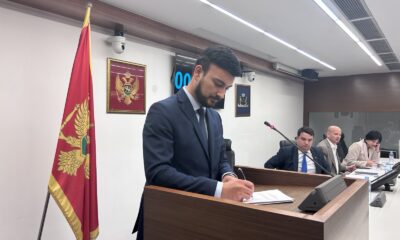
 DRUŠTVO4 sedmice
DRUŠTVO4 sedmiceBUDVA I KADRIRANJE: „Projektna“ podrška DPS-a – u foteljama
-
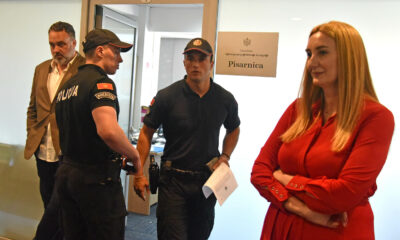
 DRUŠTVO4 sedmice
DRUŠTVO4 sedmiceAGENCIJA ZA SPREČAVANJE KORUPCIJE: Pokušaj vraćanja na staro
-
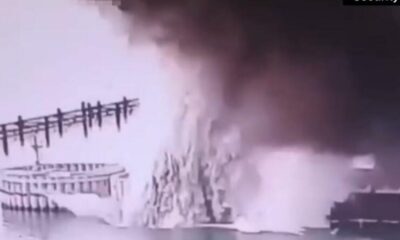
 Izdvojeno4 sedmice
Izdvojeno4 sedmiceRUSIJA-UKRAJINA – RED PREGOVORA, RED DRONOVA: Šta ako mir nije opcija
-
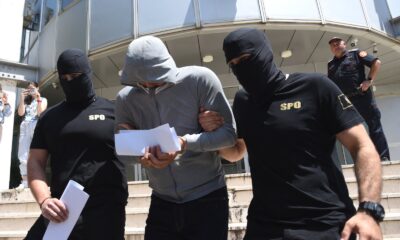
 FOKUS3 sedmice
FOKUS3 sedmiceIMPERIJA STANAJ POD ISTRAGOM TUŽILAŠTVA: Dim u krvotoku
-

 DRUŠTVO3 sedmice
DRUŠTVO3 sedmiceANDREJ VUČIĆ U PODGORIČKOM SUDU PROTIV VIJESTI: Duševni bol Prvog brata Srbije
-

 FOKUS4 sedmice
FOKUS4 sedmiceMILAN PAUNOVIĆ- INSAJDERSKE PRIČE: Tajne trojke
-
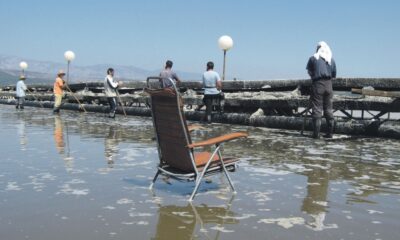
 DRUŠTVO3 sedmice
DRUŠTVO3 sedmiceODLUKA UPRAVNOG SUDA O SOLANI: Prirodni biser nije državni nego tajkunski
-
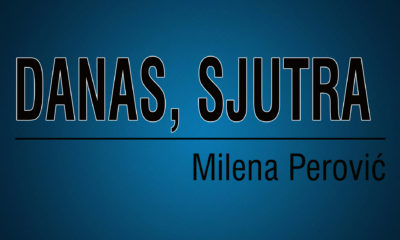
 DANAS, SJUTRA4 sedmice
DANAS, SJUTRA4 sedmiceNa početku






